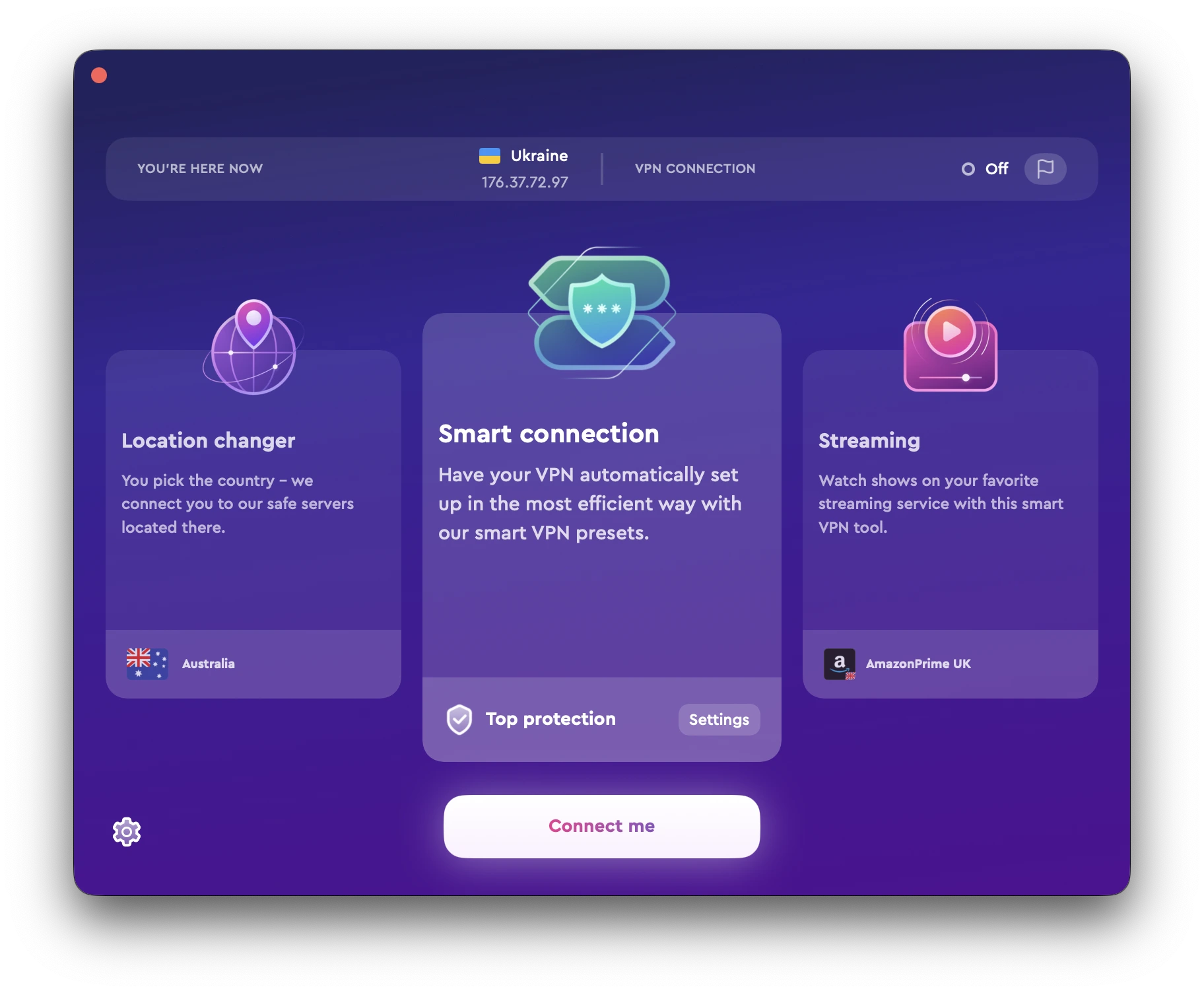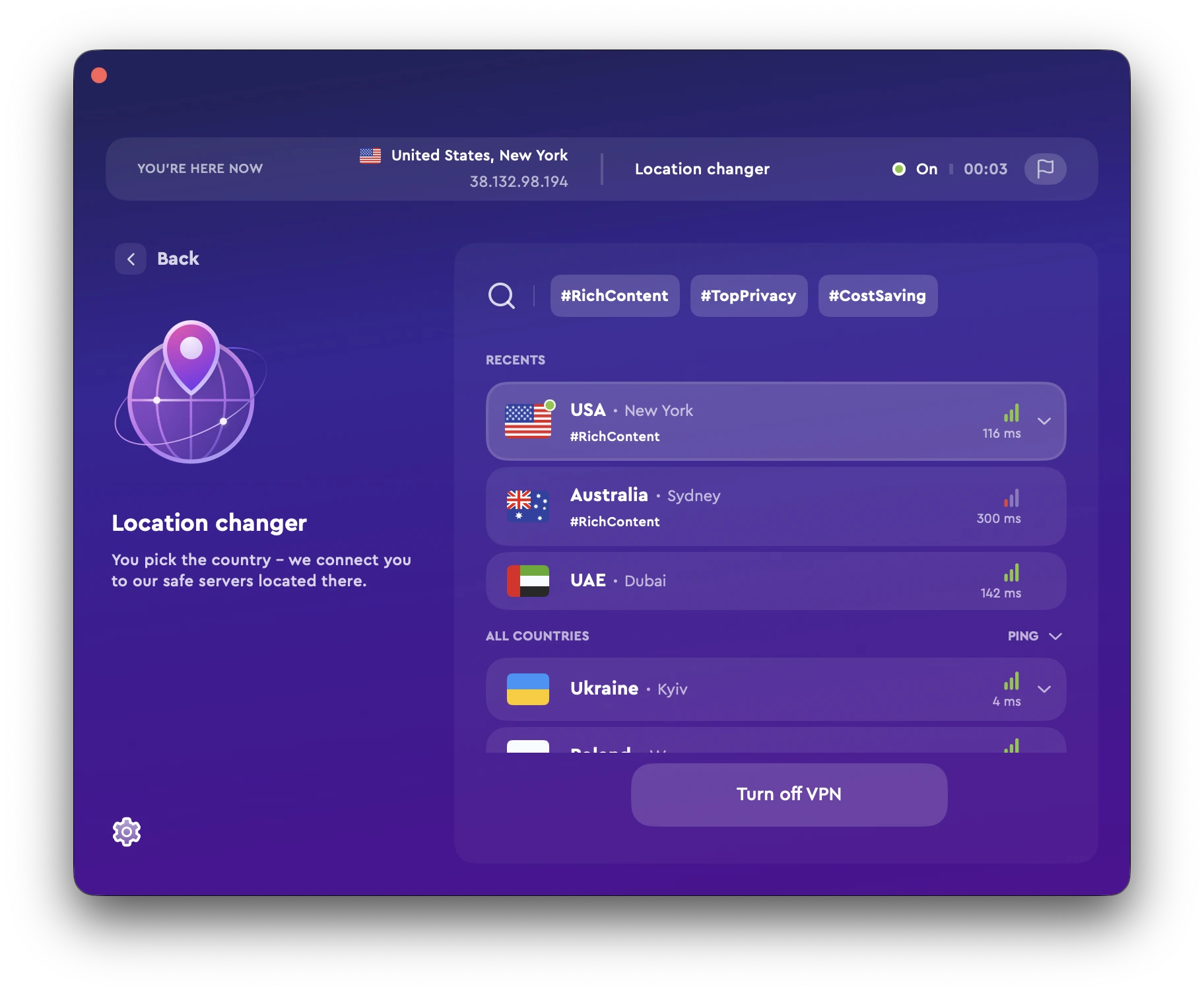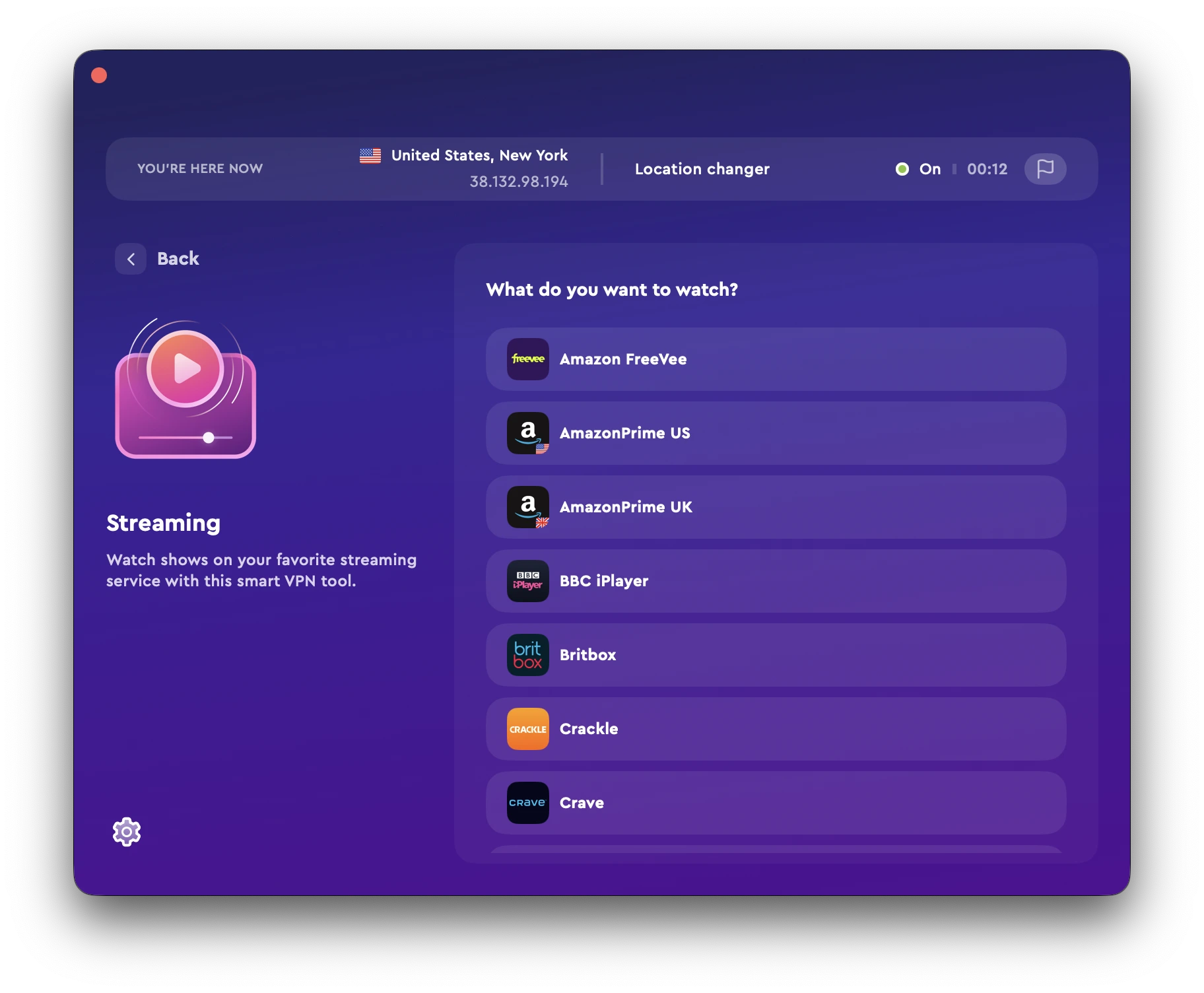In this modern era of digital connectivity, online security is no longer a luxury but a necessity. One of the key tools to ensure this security is a Virtual Private Network, or VPN. The myriad VPN uses not only encompass safeguarding your online privacy, but they also extend to securing your data, bypassing geo-restrictions, and even potentially saving money through location-based pricing.
In this guide, we’ll take a closer look at why everyone should consider using a VPN these days and explore its multiple applications. Only then can you decide if it’s worth investing in one.
Why learn about the many VPN uses?
First things first — why should you familiarize yourself with the various uses of a VPN? The answer is simple: to make an informed decision about its necessity to your daily online activities.
Many people may think that using a VPN is only relevant for tech-savvy individuals or those looking to access blocked content. However, the truth is that a VPN has become an essential tool for anyone who uses the internet, regardless of their technical abilities or online habits.
By understanding various VPN uses, you’ll be able to determine if it’s something worth incorporating into your digital life. Plus, having knowledge about its capabilities will give you more confidence in using one and maximizing its benefits.
Top 10 things to do with a VPN
So — what can you do with a VPN? We’ll divide this into two parts: common VPN uses and the more advanced applications.
The most common VPN uses
1. Protect your online privacy
The primary use of a VPN is to ensure the privacy and security of your online activities. By encrypting your internet connection, a VPN creates a secure tunnel that shields your data from potential tracking and interception.
This added layer of protection not only safeguards your sensitive information but also provides peace-of-mind while browsing the web, accessing online services, or connecting to public Wi-Fi networks. With a VPN, you can enjoy a worry-free online experience, knowing that your data remains private and your online presence is shielded from prying eyes.
2. Enhance public Wi-Fi security
Public Wi-Fi networks are notorious for being unsecured and easily hacked, leaving you vulnerable to cyber attacks. It’s crucial to protect your personal information while connecting to these networks. With a VPN, you can create a secure and encrypted connection, ensuring that your data remains safe from prying eyes.
By using a VPN, you can browse the internet with peace of mind, knowing that your online activities are shielded from potential threats and your sensitive information is kept private. Stay protected and enjoy the convenience of public Wi-Fi without compromising your security.
3. Access geographically restricted content
Among the most popular uses of a VPN is its ability to bypass regional restrictions imposed by websites and online services. By connecting to a server in a different location, you can make it appear as if you’re accessing the Internet from that region.
This feature comes in handy when traveling or trying to access content only available in certain countries. With a VPN, you can easily unblock websites and services while maintaining your privacy.
4. Secure remote work
With the rapid surge in remote work, VPNs have become absolutely crucial for companies and digital nomads alike. They not only guarantee the security of employees’ connections when accessing company resources remotely but also empower them to seamlessly access shared files and data, as if they were physically present in the office.
By establishing a secure and private network connection, a VPN ensures the confidentiality, integrity, and availability of sensitive information, thereby safeguarding the interests of company and individual alike .
5. Protect against government surveillance
In some countries, governments heavily monitor their citizens’ online activity, from browsing history to social media interactions and even private messages. This level of surveillance raises concerns about privacy invasion and potential misuse of personal information.
By using a reliable VPN, you can establish a secure and encrypted connection that shields your online activities from prying eyes. VPNs not only protect your privacy but also allow you to access geo-restricted content and browse the internet without restrictions.
Other cool things to do with a VPN
1. Save money on flights and hotel bookings
Among the lesser known uses of a VPN is the potential to save money. By using a VPN, you can change your IP address and make it appear as if you’re accessing the internet from a different country.
This trick comes in handy when booking flights or hotels online because some countries have lower prices compared to others. By connecting through a server in these locations, you may be able to find cheaper deals on travel expenses.
2. Play online games with reduced lag
A VPN can greatly enhance your gaming experience by minimizing lag and connecting you to servers that are in close proximity to your physical location. By doing so, it can enable smoother gameplay, reduced latency, and improved overall performance.
With a VPN, you can enjoy faster connections, lower ping, and a more enjoyable gaming session, regardless of where you are in the world.
3. Download torrents anonymously
When you use a VPN while downloading torrents, it guarantees that your IP address is concealed, safeguarding your online activities from being traced back to you. This additional layer of security is particularly beneficial for individuals who frequently download content from torrent websites.
By encrypting your connection and routing it through a remote server, a VPN shields your identity and ensures your privacy, allowing you to enjoy torrenting with peace_of-mind.
4. Stream content from different countries
Just like it may help you to access geo-restricted content, a VPN can also enable you to stream content from different countries on popular platforms like Netflix and Hulu.
By connecting to a server in a specific country, you can unlock a wider range of shows and movies that may not be available in your region. This means you can explore diverse cultures, languages, and entertainment options, expanding your viewing experience beyond borders. With a VPN, your streaming possibilities become virtually limitless!
5. Bypass censorship
In some countries, due to government regulations, certain websites and social media platforms may be blocked, limiting access to information and online communication. However, by utilizing a VPN, individuals can bypass these restrictions and gain unrestricted access to the internet.
A VPN creates a secure and encrypted connection, allowing users to browse the web anonymously and enjoy the freedom of accessing any content, regardless of geographical limitations. With a VPN, you can explore the vast online world without any limitations or censorship.
What can you do with a ClearVPN?
To illustrate these use cases, let’s take a look at what you can do with ClearVPN — a user-friendly and secure VPN service that offers a wide range of features.
Here’s how to get started:
- Download and install the ClearVPN app on your device. You can do this directly from the website if you’re on PC (Windows or macOS). Alternatively, if you’re on a mobile device, you can get the Google Play Store or the App store (iPhone or iPads).
- Sign up for a premium subscription. To access all of the features and servers, you’ll need to upgrade to a premium account. Prices start at just $5 per month which is a lot cheaper than most VPN services on the market. Also, ClearVPN have a 3-day free trial option, for those who are not assued that they need a VPN.
- Assuming that you’re already logged into the ClearVPN app, you should see three modes on the dashboard. If you just want to secure your connection, all you have to do is select the “Smart connection” mode and click/tap on the “Connect me” button.

Notice the two other modes on the dashboard — “Location Changer” and “Streaming.”
If you want to change your IP address to a specific location, then all you have to do is select the “Location Changer” mode.
On the next page, you’ll be able to select a specific country or region to connect to. This is where you’ll want to go if you want to access cheaper flights or if you’re trying to access content only available in certain countries.
Lastly, the “Streaming” mode allows you to easily access geo-restricted streaming platforms.
From here, you’ll be able to select a specific streaming service that you want to unblock by changing your IP address (so that it appears as if you’re accessing the internet from a different country).
FAQs
Can your ISP see what you do with a VPN?
While most ISPs have the ability to detect VPN traffic, they cannot see the actual content of your online activities. This is because a VPN encrypts your data and hides your IP address, making it difficult for anyone to intercept or monitor your internet usage.
Can I use a VPN on all my devices?
Yes, most VPN services offer apps for various devices including smartphones, tablets, laptops, and desktop computers. It’s important to check if your chosen VPN is compatible with all your devices before purchasing a subscription.
Can I use a free VPN?
While there are many free VPN services available, it’s important to note that they may not offer the same level of security and features as paid options. Free VPNs often have limited server locations, slower connection speeds, and may even sell user data to third parties.
